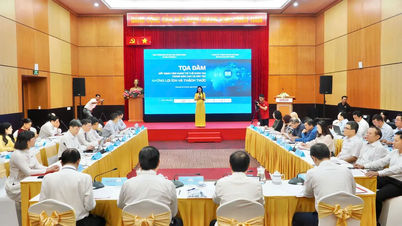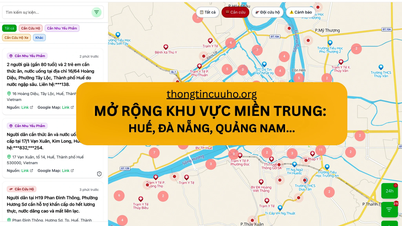As e-payments and digital asset trading become more prevalent in Asian countries, a major problem is emerging: many financial platforms still rely on public-key cryptography systems that are not designed to withstand quantum computers. This is a significant risk that could turn into a “security crisis” if not addressed promptly, according to experts.

Illustration photo
This raises two urgent questions: on the one hand, the lack of preparedness of Asian countries and financial institutions in quantum security infrastructure, and on the other, the potential for a vulnerability to spread in any market in the region. Mr. Lian warned that if just one country is successfully attacked, “a vulnerability in one country can have a ripple effect that spreads throughout the region.”
According to reports from many analysts, only a few major economies such as Singapore, Japan, South Korea and China have started to build strategies to deal with quantum technology. Meanwhile, most countries in the region are still in the early stages of preparation - this makes them "vulnerable targets" if quantum technology moves beyond testing and into actual deployment.
The threats do not stop at “cracked” encryption. Experts emphasize that digital financial transactions, smart contracts or cross-border transactions based on current encryption are all in the “risk zone”.
“There are bright spots in Asia where regulators and companies have begun testing quantum-safe security measures, but overall, the level of readiness across the region is still in its infancy,” said Raj Kapoor, chairman of a blockchain alliance in India.
Alexandra Beckstein, CEO of a quantum technology investment fund, warns that much of today’s data is “waiting to be deciphered” in the future: “All data created today is at risk. Just because quantum technology hasn’t officially exploded doesn’t mean we’re safe.”
Meanwhile, several major Asian banks, including HSBC, DBS Bank and OCBC, have launched pilot programs for quantum computing and cryptographic upgrades to “post-quantum” standards. However, scaling this across the entire financial system – with thousands of institutions and millions of transactions per day – remains a major technical, cost and human challenge.
This scenario sends a clear message to the region: preparing now will help mitigate major risks in the future. Upgrading encryption, implementing post-quantum cryptography standards, strengthening system monitoring and ensuring data backup mechanisms are steps that cannot be postponed.
Source: https://doanhnghiepvn.vn/cong-nghe/ma-hoa-tai-chinh-chau-a-truoc-bo-vuc-bi-pha-vo/20251029053301738


![[Photo] Hue: Inside the kitchen that donates thousands of meals a day to people in flooded areas](https://vphoto.vietnam.vn/thumb/1200x675/vietnam/resource/IMAGE/2025/10/29/1761738508516_bepcomhue-jpg.webp)
![[Photo] Human love in the flood in Hue](https://vphoto.vietnam.vn/thumb/1200x675/vietnam/resource/IMAGE/2025/10/29/1761740905727_4125427122470875256-2-jpg.webp)
![[Photo] Prime Minister Pham Minh Chinh chaired a meeting to evaluate the operation of the two-level local government model.](https://vphoto.vietnam.vn/thumb/1200x675/vietnam/resource/IMAGE/2025/10/29/1761751710674_dsc-7999-jpg.webp)












































































![[Live] Concert Ha Long 2025: "Heritage Spirit - Brightening the Future"](https://vphoto.vietnam.vn/thumb/402x226/vietnam/resource/IMAGE/2025/10/29/1761743605124_g-anh-sang-am-thanh-hoanh-trang-cua-chuong-trinh-mang-den-trai-nghiem-dang-nho-cho-du-khach-22450328-17617424836781829598445-93-0-733-1024-crop-1761742492749383512980.jpeg)


























Comment (0)